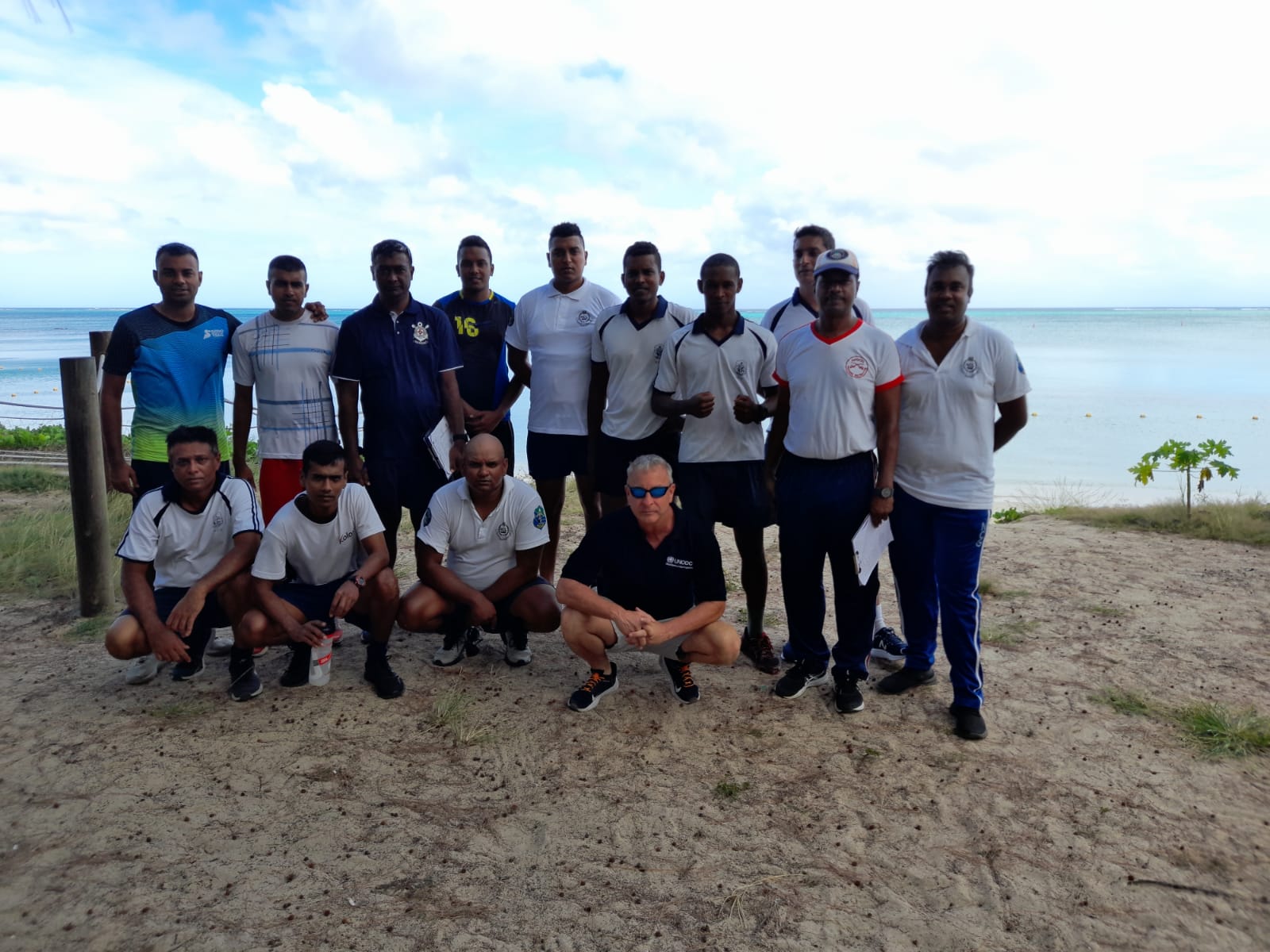UNODC Eastern Africa News and Stories
You are here: Home / News
Combatting Transnational Organized Crime in the Western Indian Ocean through Maritime Law Enforcement Mentoring
 Mauritius, 9 June 2022 - UNODC’s Global Maritime Crime Programme (GMCP) contributes to Sustainable Development Goals 14, 16 and 17 by supporting Member States to combat maritime crimes.
Mauritius, 9 June 2022 - UNODC’s Global Maritime Crime Programme (GMCP) contributes to Sustainable Development Goals 14, 16 and 17 by supporting Member States to combat maritime crimes.
With the aim of disrupting transnational organised crime at sea, UNODC through the GMCP programme is working with Western Indian Ocean States on capacity building and training for their criminal justice systems from maritime law enforcement agencies to Judiciaries. The initiative includes effective patrolling of trafficking routes based on accurate maritime domain awareness (MDA); development of prosecutorial, investigative, and judicial expertise; and enhanced cooperation through sharing of information and active operational coordination to ensure legal finish for maritime crimes. These efforts now include the deployment of a Maritime Law Enforcement (MLE) mentor in each of seven regional partner countries, Comoros, Kenya, Madagascar, Mauritius, Mozambique, Seychelles and Tanzania, on a long-term basis.
In Mauritius, the programme is working with relevant MLE agencies, including the Mauritian National Coast Guard (NCG), through our MLE mentor to provide seamanship training. This involves working towards qualifying host nation MLE personnel on a regionally standardised set of essential skills and establishes a set of improved basic operating procedures that will be deployed when maritime crime threats arise.
During the seamanship training that took place in Mauritius this month, Heerven, one of the training’s participants, commented that “the training provides self-confidence and teaches us skills we should have had in our work. It teaches us how to do our work right”. Ash Gordon, UNODC MLE mentor, expressed his satisfaction that participants already have the qualities needed to teach them: curiosity, dedication, and attention.
In Tanzania, UNODC GMCP is similarly working with the Tanzanian Marine Police and the Drug Control and Enforcement Authority (DCEA) to establish standardized essential skills to improve the MLE agencies’ basic fitness, and visit, board, search and seizure (VBSS) procedures along with essential skills as boat crew members or engineers. This involves conducting both in-classroom and theory-based lessons as well as practical trainings on the water, such as underway manoeuvres and patrols.
These activities are supported by the US Bureau of International Narcotics and Law Enforcement Affairs (INL), through the programme, “Improved Application of Information Sharing in Maritime Rule of Law in the Western Indian Ocean”.
For More Information: Global Maritime Crime Programme (unodc.org)